Allama was once confronted with a question by a follower regarding his father’s reluctance to accept Allama’s teachings. The father’s skepticism stemmed from his belief that Allama, without a beard, might be one of many online figures leading people astray. Allama responded to this concern with profound insight and eloquence.
Here, we have presented Allama’s response in the form of blog for your better understanding.
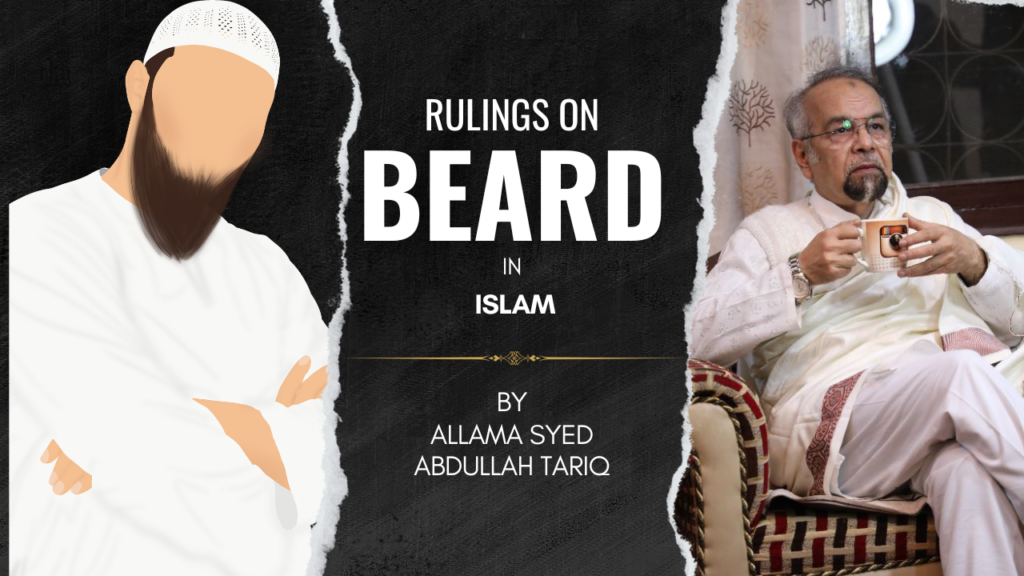
ALLAMA’S RESPONSE:
Millions of people can stand witness that I have a beard. Why didn’t your father see it and why are you in doubt?’
It so happens that different Muslim groups have their own notions about the beard. First, they think that it is obligatory to keep a beard, and second, every group has its own idea of the shape and size of a beard to be accepted as legitimate Islamic.
OPINIONS OF SCHOLARS ON BEARD
Among those who consider it obligatory, some say that the Sunnah is to keep one fistful of beard. They trim it when it grows in length. Their argument is based on the traditions that describe the Prophet’s (s.a.w.) visage and appearance. There is another group, not satisfied with the above. They claim that the Prophet s.a.w. ordered to let it grow. They consider it Haram to cut any hair from the beard except to trim it from here and there so as not to shorten it but prevent it from looking messy and wild. There are still those who believe in letting it grow like a bush without even trimming a single hair. So, there is no length or shape of the beard which will satisfy all Maslaks.
Maulana Maudoodi says that a beard is that which may be considered a beard in ‘Urf-e-Aam’. It means that people may call it a beard according to the perception of their era and time, irrespective of its size and shape. So, I have a beard at least according to the standard of the founder of Jama’at-e-Islami, or maybe not
Sheikh Yusuf Al-Qaradawi, the chairman of the International Union of Muslim Scholars, based in Qatar is arguably the most authentic and respected of the living Fiq’h scholars today. I advise you to read the discussion of the beard in his book ‘Al-Halal Wal-Haram in Islam’. It has been translated into many languages including English and Urdu. It is interesting to note that the man who translated this famous work in Urdu has inserted footnotes for every 2-3 lines of the said discussion, disagreeing with him and in one footnote, he even charged the Sheikh of committing ‘Ilmi Khiyanat’ (Intentional scholarly dishonesty). I wonder why he was compelled to translate a book of a dishonest person! Maybe he was paid to translate it. Following is the translation of the concluding part of the Sheikh’s discussion on beard.
“So, according to me, there are three points of view about shaving a beard.
- One saying is that shaving a beard is Haram. This is the Maslak (point of view) of Ibne Taimiyya etc.
- Second saying is that it is Makrooh (abhorrent or undesirable) to shave a beard. This saying is ascribed to Qadhi Ayaaz in Fat’hul Bari and there is no other name mentioned with him (saying that).
- And the third saying is of permissibility (of shaving). Some present day scholars render this opinion.
But probably the most balanced, the most educated guess and the motto based on facts is of abhorrence and undesirability. It is because, though its inherent reason is described as opposing the disbelievers, the directivae of keeping a beard does not unmistakably prove its being obligatory. Similar to it is the instruction of dyeing (the hair). The inherent wisdom behind this also was to oppose the Jews and Christians though some companions did not use dyes. It shows that it is only ‘Mustahab’ (better) to dye (one’s hair).
It is correct that there is no evidence of shaving among ‘Salf’ (the earler scholars and pious people) but the possible reason thereof maybe that they did not feel the need to shave as they were habitual of keeping the beard.”
(Yusuf Al-Qaradawi, Translated from Al-Halal Wal Haram Fil-Islam)
So, we see that in the opinion of the tallest living scholar, Sheikh Yusuf Al-Qardawi, shaving a beard is Makrooh or undesirable, not Haram and keeping a beard is only desirable and Mustahab.
I am not clean-shaved and I keep a beard. So, according to the Sheikh’s understanding I am not even committing a Makrooh. But many people may not accept it as the long bearded people do not accept a fistful length of beard which the Prophet s.a.w. kept. They call it ‘still Haram’. That is why I usually avoid replying to this question but you persisted and I succumbed to your wish.
I have my own detailed reason based on Qur’an and Sunnah for not keeping the traditional beard but those who are adamant on their own opinion may not agree. They insist only on opinions and traditions of their preferred scholars.
EMBRACING WISDOM BEYOND APPEARANCES
Apart from the above discussion, it is against the teaching of Qur’an and Sunnah and against the scientific rational approach not to listen to anyone because of his/her attire, appearance, beliefs or even religion. Nowhere in Qur’an, has Allah s.w.t. recommended a particular attire or an appearance for Muslims. The holy Prophet s.a.w. said:
“Verily Allah does not look at your (outward, apparent) forms and wealth; rather He looks at your hearts (intentions) and deeds.” (Sahih Muslim, the Book of Al-Birr, Hadith: 6543)
About the Munafiq’s (sychophants), the Qur’an says that they emphasize too much upon the outward’s appearance to mislead people.
“When you see them, their appearance impresses you. And when they speak, you listen to their impressive speech…” (Q. 63:4)
How often does one see needy people gathering and being helped at the houses or centers of bearded religious heads? The Qur’an says their Salahs (prayers) are just show-offs if they repel the orphans and do not feed the people in dire need. They are neglectful of the purpose of their prayers. (Q. 107:1-5). In fact, the main test of a sincere Religious leader is that he does not devour the money extracted from the people by wrongful means and does not make a business out of his Deen. He must not charge money for his speeches and lectures. How many of them have you seen solemnizing Nikah without charging a hefty fee? The essential requirement for a religious head is not a beard but according to Qur’an, the real test is whether he trades his Deeni knowledge for money or not. It will be informative to find out about the wages, most of these religious heads get from their institutions, while they possess land worth crores of rupees and one must enquire about their (usually) poor ancestors’ financial status and also try to find out about their sources of income. Most of them, who are much respected for their knowledge and also outlook and attire, are prospering on Zakat money which was meant for the poor and needy. The Qur’an does not ask you to keep a beard but listen to Qur’an what it says about such religious heads:
“O you who believe! Indeed, most of the Shariah Scholars and hermits (Religious Faqeers) do indeed wrongfully devour men’s possessions and turn [others] away from the path of God…” (9:34)
If someone argues with you that the above Ayah is about Jews and Christian religious scholars, then refer him to the following Hadith, and if he says the following Hadith is about the common people only, while all Muslim Religious Heads are exempt from it, then leave him alone and be assured that he is from amongst the imposters:
“Narrated Abu Sa’id: The Prophet s.a.w. said: ‘You will follow the wrong ways, of your predecessors so completely and literally that if they should go into the hole of a mastigure, you too will go there.’ We said, ‘O Allah’s Apostle! Do you mean the Jews and the Christians?’ He replied, ‘Whom else?” (Bukhari 3456)
You certainly know that Muslim scholars accept the proven scientific principles discovered by Non-Muslim scientists and correlate them with the Ayahs of the Qur’an but do you also know that most of the present-day arguments and evidence of the mention of Prophet Muhammad s.a.w. in earlier scriptures are based on the research made by Qadiani scholars? We shall certainly accept all the good things in support of our Deen from all Non-Muslims while rejecting their false ideas about faith. We readily distribute the wonderful Seerah booklet ‘Muhammad’ written by a staunch Hindu Prof. Rama Krishna Rao.
You must also know that two universally praised English translators of the Qur’an, Sheikh Abdullah Yusuf Ali and Sir Marmaduke Pickthall had praised the Tafseer of Lahori Ahmadi Commentator Maulana Muhammad Ali while rejecting those parts that were based on Qadiani belief.
In 1994, one of my senior most colleagues in WORK approached me on behalf of all the other members of our organization with the request that I should keep a traditional beard. They argued that people do not listen to us due to the head of the organization, not sporting a beard of their liking. He tried to convince me that I would have a large following and Deen and spiritual work would grow very fast if I conceded their demand. My answer today is the same as I gave him 26 years ago. I do not want that crowd which listen to me and follow me blindly because of my beard. We have to groom those who are prepared to understand Deen and its propagation rationally, no matter how small their number would be. Beard has assumed the significance or identity as a monogram or a flag of the religious Muslim. The Non-Muslims, have started hating our flag because of our misconduct for centuries. There was a time when this flag was respected. I do not want to approach Non-Muslims with a symbol they dislike. Had it been compulsory in Islam I would not have cared for their like or dislike but when the Muslims have made lesser important things obligatory while neglecting the essentials, I prefer to stick to the less preferable outlook in the interest of a greater cause which is more dear to me.
Shaa’ir-e-Islam (the poet of Islam) Dr. Sir Allama Iqbal, was one of the greatest of Walis (in my opinion) in recent times. His love for the Qur’an and the Prophet s.a.w. was exemplary. Dr. Mohd Iqbal is respected, read, and quoted by almost all bearded Muslim scholars. The status of Sir Iqbal can be assessed from the following event. Once he openly reprimanded the most renowned Islamic scholar of his time Maulana Hussain Ahmad Madani through the following couplet.
Non-Arab still doesn’t know the secrets of religion otherwise,
How strange is this thing from Hussain Ahmad of Deoband!
He sings on the mosque’s pulpit that MILLAT is from WATAN,
How ignorant he is from the status of Arabian Muhammad!
Reach yourself to Mustafa as he himself is all religion,
If you reach not to him, it is all being like Abulahab.
عجم ہنوز نہ داند رموزِ دیں، ورنہ
ز دیوبند حُسین احمد! ایں چہ بوالعجبی است
سرود بر سرِ منبر کہ مِلّت از وطن است
چہ بے خبر ز مقامِ محمدِؐ عربی است
بمصطفیٰؐ برساں خویش را کہ دیں ہمہ اوست
اگر بہ او نہ رسیدی، تمام بولہب است
The Maulana wrote back to Iqbal accepting his slip.
Not only Sir Iqbal had no beard but he had thick moustaches too. All Muslim scholars and knowledgeable Muslims respect him for his propagation of Deen through his poetry. No one asks to boycott him for his appearance.
No one questions the appearance of Haafiz-e-Qur’an Syed Qutub Shaheed whose Qur’an Commentary ‘Fi Zilal-il-Qur’an’ is much respected. He even laid his life for Deen. I still remember his smiling face when he was being taken to the gallows for saying that there should be an Islamic system in Egypt. He had no beard and a thick moustache. None of the present-day religious heads can match his stature in the eyes of Allah.
Sheikh Abdullah Yusuf Ali’s translation of the Qur’an is also respected worldwide. Allah s.w.t. rewarded him such that his translation is the most published Qur’an translation among all languages in the world. He had no beard and sported thick mustaches. No Muslim in the world boycotted his translation because of his appearance.
Sir Muhammad Marmaduke Pickthall is also credited with gifting us an authentic Qur’an translation. With his shaved beard and thick Moustache, he delivered Friday sermons every week in two mosques in England, one in London and the other 50 km away in Working. No one in the world questioned his right to translate the holy Qur’an and give Friday sermons in two mosques. In fact, his sermons were so popular that many of them were published. And nobody prohibits anyone from benefitting from his translation. Sir Pickthall and Sheikh A Y Ali served Islam in many other valuable ways but I am skipping that.
Those were some exceptionally great Islamic scholars having not only no beard but sporting heavy moustaches too. There are many others. They were certainly not the kind of people who could disregard any important Islamic teaching. Obviously, they were of the opinion that keeping a beard is not obligatory in Islam.
One may argue that howsoever great they were, their opinion about the beard and moustaches and their conduct are not a model for us. True, but my only question from the people who refuse to listen to my discourses about Deen and Dawah because of the shape and size of my beard, is that why do an overwhelming majority of Muslim Ulema or the public not boycott the works of the above people also? As per their standards, my appearance is better than the above-described greats. I do not clean shave my beard and I do not keep moustaches. I am not asking anyone to follow me in my appearance. In fact, in my opinion, keeping a fistful length of beard is preferable over being clean-shaved or keeping a beard like me. I have my reasons for not adopting the preferred practice which I have already mentioned.
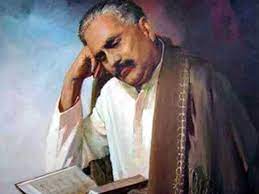
Dr. Sir Allama Mohd Iqbal
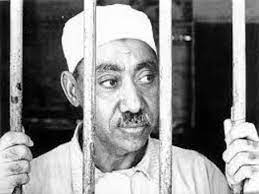
Sayyid Ibrahim Husayn Shadhili Qutb Shaheed
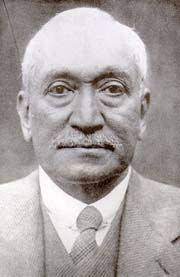
Sheikh Abdullah Yusuf Ali
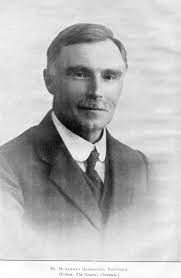
Sir Muhammad Marmaduke Pickthall
